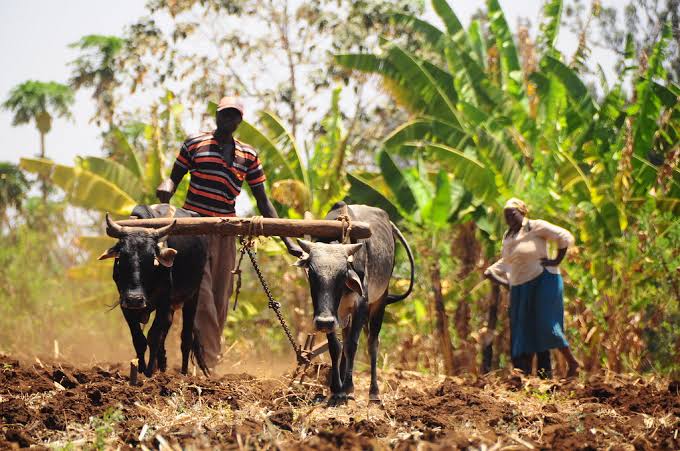
By George Munene
Global fast food chain Kentucky Fried Chicken, KFC, has said that it is ready to on-board Kenyan potato suppliers given they meet its strict expectations in quality and safety.

By George Munene
Global fast food chain Kentucky Fried Chicken, KFC, has said that it is ready to on-board Kenyan potato suppliers given they meet its strict expectations in quality and safety.

Farmers can control red mites attack on vegetables by growing the hairy African nightshade, commonly called managu, along orchard borders after a research revealed that the crop ends the reproduction cycle of the pest.
Red mite susceptible crops include gooseberry, bitter apple, tomato, eggplant potato, among others.
The mites can destroy up to 80 per cent of the crop. The destruction can be 100 per cent during hot weather when reproduction of the pests is high.
International Centre for Insect Physiology and Ecology (ICIPE) researcher Dr. Lucy Kananu said the hairy variety, secretes chemicals that prevent the red tomato spider mites from laying eggs.
The black night shade leaves have a sweet scent that attracts the pests. After landing, the same leaves release an odor that interferes with the reproduction, therefore, terminating the pest.
“When the mites reach the leaf’s surface, the ‘small hairs’, scientifically known as trichomes, trap the pests, hence hindering further movement.”
“Additionally, the disturbance caused by the mites on the leaf surface triggers the glandular tips, or the ‘succulent lobes’, of these hairs, to crack. The cracked lobes then release secretions that contain foul smelling chemicals that prevent the pests from laying eggs, thereby breaking their reproduction cycle,” Said Dr. Kananu, who is the lead author of the study.
Related content
Eating termites is healthy and there are people who farm them for ready markets
Varsity launches solar drier that preserves meat, maize, vegetables and fruits for up to one year
Cabbages give higher yields at lower cost when grown in rotation with traditional vegetables
In protecting other susceptible crops in the Solanaceae family, Dr Kananu advocates growing the hairy nightshade along the border or around the crop of interest to act as a death trap for the mites.
In 2017 for instance, Kenya’s fresh produce to the EU was intercepted 29 times due to harmful organisms in a crackdown that makes it difficult for Kenya to be removed from the European Union’s quality watch list.
This is one of the practical methods of controlling pests as the consumers, especially international markets, drift toward organic farming dues to risks associated with chemical pesticide residues.
Prof Baldwyn Torto, who supervised the ICIPE research, said the discovery is a key step in uncovering more environmental friendly ways of managing the pest in crop production.
Write comment (0 Comments)A family owned farm in Thika is considered the benchmark in mixed farming as over 10 to 15 famer groups visit them every week to learn how they are able to operate several farming activities in a small piece of land.
The family of five; Kenneth Macharia, his wife and three children cultivate in less than half an acre land near Sports Club in Thika, Kiambu Country.
RELATED ARTICLE: Mixed farming immune farmer from severe losses
Kenneth Macharia who started fish farming, poultry and a dairy unit in his farm in 1999 after retiring as a technician from the Ministry of Transport, has turned the farm into a practical training centre where other farmers and experts come to learn how a small land can host many farming activities.
“I receive visitors every week and I share my experiences with them as a mixed farmer. Some churches from the area also bring youth to learn some of these practical skills in farming,” said Macharia.
“In June, I even received a group of farmers and their leaders from South Nyanza who had come on a series of agricultural events and bench marking in Nairobi and my farm was one of their destinations.”
Macharia has since registered with the Registrar of Society naming it Sky Blue Farmlands. This enables him to earn supply tenders of his agricultural produce.
RELATED ARTICLE: Mixed farming earns agripreneur double cash
Besides poultry, fishery and dairy farming, Macharia is currently running a yoghurt production plant within the same piece of land using his own milk to produce Highland Yoghurt. For the last six months, he has distributed it to the local shops and some areas in Nairobi such as Kawangware and Baba Dogo among others.
Although the heated political climate in the country has to some extent affected the yoghurt business, Macahria is not giving up. “I have won a supply tender with Kassmatt Supermarket which is good for business after the current political situation affected our supply in some areas in Nairobi.”
A litre of Highland Yoghurt goes for Sh160. The milk, processing process and the yoghurt itself has been certified by Kenya Bureau of Standards (KEBS) meaning the farm is operating a clean business.
RELATED ARTICLE: Father of hydroponics rakes fortunes with mixed farming
He advices young farmers to shy away from the fear of trial that many beginners in agribusiness suffer from ending up with a country with limited agriprenuers as compared to the population feeding on agricultural produce.
“I welcome the youth who want to learn and be trained for free. I am also thinking of starting admitting college students who would like to come for attachments and internships in my farm from next year on as many have been requeting,” said Macharia.
Write comment (2 Comments)
